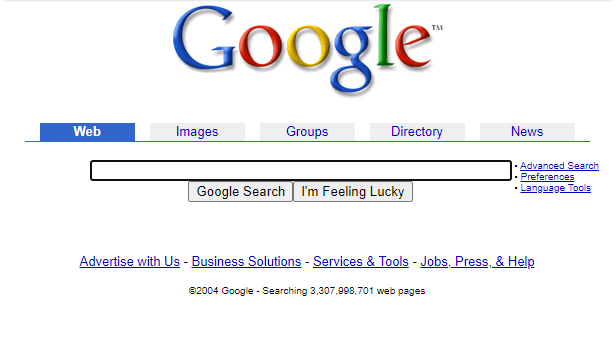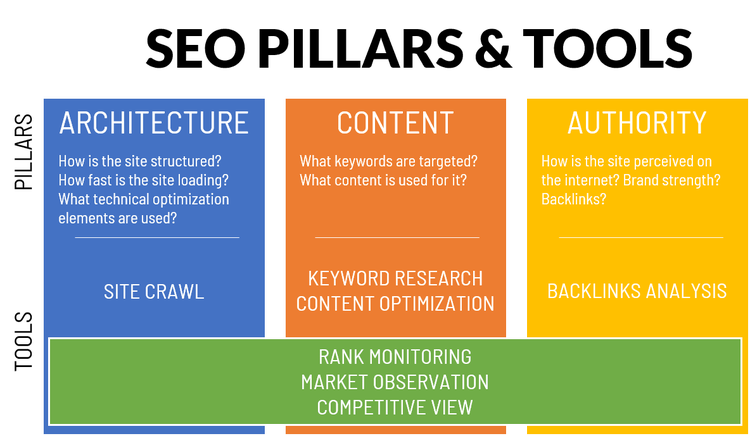Google has become a verb and a synonym for search on the internet. Yet there were internet search engines before Google, and the uncontested leader of search marketing does have competitors around the world.
Bing from Microsoft has taken up the fight, and while the Russian Yandex and the Czech Seznam are feeling the heat from Google, Baidu has just as strong a position in China as Google has in the Western Hemisphere.
Overview: What is a search engine?
Search engines are the gates you pass through to enter the world wide web. They’re a human-machine interface, if you consider the internet a machine. A search engine is an interface that allows you to find your way on the internet, to find answers to your questions, and, increasingly, to find products or services to buy.
In the future, a search engine may be your AI-driven, voice-activated personal assistant helping you organize not just information but also appointments, travel, shopping, and your health.
A search engine is structured around a query, also called a keyword or a search term, and a search engine results page, or a SERP for those in the know. There is a high concentration of clicks at the top of search results. There are a couple of reasons for this.
Only a limited number of results can be shown in the interface, and when a result is proposed as the first, many people will click on it rather than taking the effort to read through others. Also, people tend to trust rankings. If a search engine puts a page in the first position, they assume it’s probably the best.
This has created an economic model of paid search advertising at the top of the SERPs and a whole industry of search marketers working on ranking web pages the highest they can in those search results. This work is carried out by our dear friends, the SEOs, which, if you’re interested in search engines, you will probably know is the abbreviation for Search Engine Optimization.
How do search engines work?
A search engine is very sophisticated software managing massive amounts of data and treating it with advanced algorithms incorporating increasing amounts of artificial intelligence (AI).
The basic functions of a web search engine are the following:
- Crawling the web
- Storing web pages in a database
- Indexing the content
- Providing a search interface
Crawling the web
One of the main functions of a search engine is "crawling" the internet. The term comes from the fact that the search engine would move from page to page on the web to gather data. It would scan through all the content and identify all the links and then start visiting each of those links -- movement pictured as a spider crawling around the world wide web.
In the early days of internet searching, you were required to submit your website to the search engines in order for them to find your pages. Today Google web crawling is so efficient that it will find your website soon after a link from another page points to it.
Storing web pages
The search engine gathers information from the pages it finds and stores them in aggregated form in a database. Early search engines would store only parts of the page or simply meta information (information about the information) hidden in the header of the page. Today the norm is to gather the full amount of content. Search engines truly store big data in their effort to cover the entire internet.
Indexing the content
The search engine goes through a process of website indexation in order to create an easily accessible index of the content. It makes use of a technique known as the inverted index in which it will categorize web pages under searchable entries such as keywords, topics, or entities. This will enable it to find and display the relevant data much faster than if it had to search through all the content at each query.
Search interface
A search interface allows search engines to enter and interpret keyword queries and render a search results page with results from the inverted index. The search interface consists of a query field, which is a form where you enter a keyword search and press a button to move on to a results page showing you content, or links to content, and providing the most relevant results the search engine could find.

Google initially was only a search box with two buttons. Pressing the “Google Search” button would bring up the search results page, and pressing the “I’m Feeling Lucky” button would take you to the first result in the list. Image source: Author
What is search engine optimization?
The top positions in search results became a top objective due to the effect of search engine users being lazy and clicking on the first result and trusting the algorithm to provide the best result at the top of the page. Search engine rankings became internet prime time -- the place to be when users searched with a keyword relevant to your business.
The SEO industry emerged well before search engines found their economic model with paid search. SEOs would research, test, and learn how to improve web pages in order to rank in the top position for the most relevant keywords.
SEO is based on three pillars -- Architecture, Content, and Authority. Architecture covers the technical dimension of your website, meaning its response time, page and link structures, header components, and meta tags.
The Content dimension covers keywords and website content. SEOs will do research to find the best keywords to rank for and then create or commission content that is well-structured for those keywords. The Authority dimension is about how your site is seen from the outside, the strength of the brand, and the links pointing to the site.

There are tools for each of the three SEO pillars, and there are tools that monitor and measure market forces and performance. Image source: Author
Search engine analysis spans the various approaches shown in the illustration above: site crawl, keyword research, content optimization, backlinks analysis, rank monitoring, and various market trends and competitive analysis approaches. To learn more about SEO tools, check out The Ascent’s reviews of some of the leading SEO software solutions in the market.
7 alternatives to Google for users to find your content
Although Google is considered the world’s leading search engine, it is not the only player in the market and has various competitors around the world. Let’s see who they are below:
- Bing: Microsoft’s search engine is a follower in many aspects, but it is backed by great technology and ambition. It is also a white-labeled backfill for various search properties around the world.
- DuckDuckGo: A small U.S.-based search engine that does not track users or filter search results.
- Baidu: The Chinese search engine created by Robin Li, the man who created the Rankdex algorithm that inspired Google. Baidu is the leading search engine in China.
- Yandex: Yandex, which stands for “Yet Another Index,” was created in Russia and mainly covers Russia and former Soviet Union countries. The only other addition is Turkey, where Yandex has managed to compete with Google.
- Naver: A South Korean search engine that dominates the local market there.
- Yahoo!: Yahoo! used to be the most important entry point to the internet. It used Google as backfill but has been surpassed by its former service provider. Yahoo! Japan is different from Yahoo! and a major search engine in that market.
- Qwant: A French search engine with ambitions to attract users with a great user experience and privacy protections similar to that of DuckDuckGo. However, Qwant remains at a low level of penetration.
Step through the search engine gate to knowledge
Search engines are some of the most accomplished technical solutions the world has seen and are the cornerstone of business for Google, Yandex, Baidu, and Microsoft. They allow users anywhere in the world to access more information than anyone could have imagined.
Over time, the nature of searching is expected to evolve toward more natural interfaces such as voice and images, but today it is still mainly keyword- and text-based.
Search engine marketing with its dual dimensions of SEO and paid search is one of the most dominant and powerful digital marketing channels. Search provides a truly magical solution for accessing the vast amounts of data accessible on the internet and has contributed to creating an economic model for the web. Just Google it to learn more.
Our Small Business Expert
We're firm believers in the Golden Rule, which is why editorial opinions are ours alone and have not been previously reviewed, approved, or endorsed by included advertisers. The Ascent, a Motley Fool service, does not cover all offers on the market. The Ascent has a dedicated team of editors and analysts focused on personal finance, and they follow the same set of publishing standards and editorial integrity while maintaining professional separation from the analysts and editors on other Motley Fool brands.